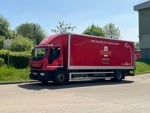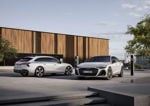Each new year feels like an appropriate time for something of a review, a moment to reach for a clean sheet of paper and make a list of the things you’d like to tackle.
So, in that spirit, here are the issues I believe fleets would like to see resolved or improved during 2025, based on feedback from Association of Fleet Professionals (AFP) members.
The consultation on the Zero Emissions Vehicle (ZEV) Mandate should hopefully result in a positive outcome.
The policy is part of the framework that sets the whole future direction for fleets and we really do need to see some help around the distortions that its targets creating.
For us, the biggest failure of the ZEV Mandate concerns electric and other zero emissions vans.
Fleet adoption has effectively stalled at around 5% and more Government understanding is required, ideally in line with the Van Plan that we produced in 2024 alongside the BVRLA and other parties, providing ideas for improved affordability, vehicle charging and regulation.
When it comes to electric vans, the 4.25 tonne question also really needs to be resolved.
We understand concerns around safety raised by the authorities but the matter has been dragging on for years now, and fleets and manufacturers who have invested in these vans deserve a much greater degree of certainty.
A final point related to electric vehicles (EVs) is that the charging infrastructure should be massively improved.
We’re living in a two-tier world when it comes to charging – those with off-road parking can usually install a charger and access low-cost electricity; those living in apartments or terraced housing usually can’t.
If people in the latter group want to drive an EV, they will tend to have to rely on highway charging, which is exponentially more expensive. This divide needs removing if electrification is to work for all.
Many of the other issues in my 2025 list are related to costs.
While inflation has fallen from the worrying rates seen in the last few years, fleet budgets remain under considerable pressure. Insurance premiums, for example, appear to have stabilised after rocketing but remain at historically high levels, uncomfortably so for many vehicle operators.
The cost of service, maintenance and repair has also risen, of course, as have vehicle off-road times.
In all these areas, any improvements would be very welcome, as would more action to resolve the skills shortages that continue to affect garages and workshops, especially for EVs.
Quite how many of these points are likely to see some kind of resolution this year is very much open to question.
At least some are the results of long term and international trends that are beyond the influence of the fleet sector and sometimes even the government itself.
However, at the AFP, our members continue to work together in a collaborative and imaginative fashion that often proves effective and, for this reason, we remain optimistic about the possibility of making at least some progress.





















Login to comment
Comments
No comments have been made yet.